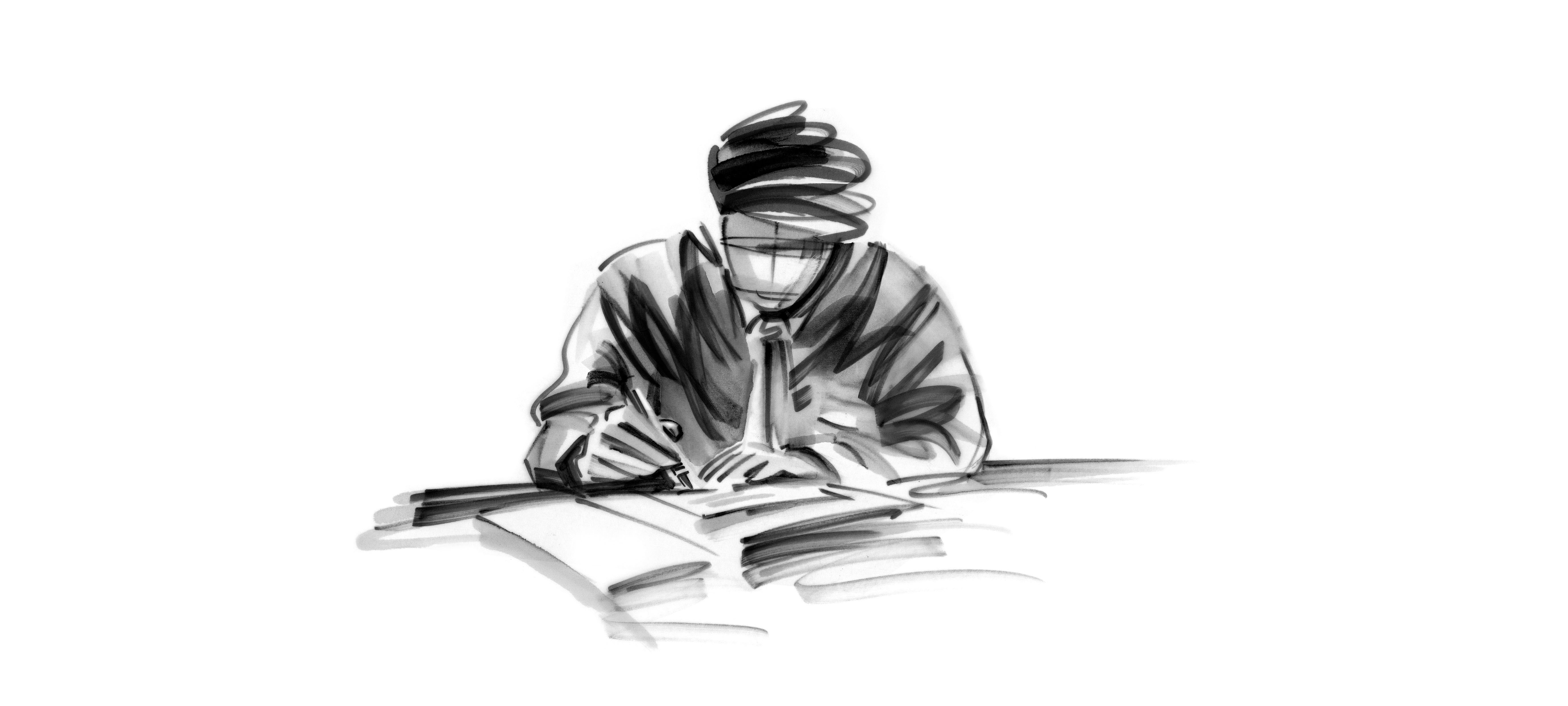I used to be a political cartoonist. Here's what you should know about satirizing political assassinations.
In defense of symbolic violence in art


A free daily email with the biggest news stories of the day – and the best features from TheWeek.com
You are now subscribed
Your newsletter sign-up was successful
America was still reeling from a spate of pretend assassinations last week when it was shaken by an attempted real one. First, comedian Kathy Griffin was summarily run through the internet's shame machine for posing with a fake severed president head. Then corporate sponsors pulled their support of a Shakespeare in the Park production of Julius Cæsar featuring a Trumpish tyrant getting the traditional pincushioning. Trump supporters reacted to these depictions of assassination — one comedic, one dramatic — in much the same way that their arch-enemies, radical Muslims, have to cartoon or operatic depictions of The Prophet — with censorious outrage. At least the imbroglio served to introduce them to the works of Shakespeare.
After James Hodgkinson attempted to assassinate members of the Republican congressional baseball team, a lot of conservatives hopped up and down pointing their fingers at those reckless liberal polemicists. Newt Gingrich, ever our national peacemaker and voice of moderation, decried the climate of increasing hostility on the left that could lead to an attempt on the lives of GOP lawmakers from an outspoken Trump opponent.
Allow me to dissent.
The Week
Escape your echo chamber. Get the facts behind the news, plus analysis from multiple perspectives.

Sign up for The Week's Free Newsletters
From our morning news briefing to a weekly Good News Newsletter, get the best of The Week delivered directly to your inbox.
From our morning news briefing to a weekly Good News Newsletter, get the best of The Week delivered directly to your inbox.
Sorry to add insult to imaginary injury, but, as a former political cartoonist who once drew Ronald Reagan's head impaled on a bamboo pole, I hold with the unfashionable notion that artists should be allowed to do whatever they want: that Lionel Shriver should be allowed to write about Latinos, that Dana Schutz should be allowed to paint Emmett Till, and that Kathy Griffin should be allowed to accessorize with the president's head.
Of course "allowed to" doesn't necessarily mean "universally praised and lavishly rewarded for." An artist's job is to take risks, and taking risks means sometimes doing things that turn out to be stupid and wrong. The riskier the subject matter, the better or funnier your art had better be. If you fail, people are going to be offended and mad and call you names on the internet. They will also do this if you succeed. If your intention is to provoke, you don't apologize when you succeed; the correct response, when you waggle a severed president's head at the public and the public is outraged, is: "That's right, and here's Mitch McConnell's, too."
Americans who take their kids to Saw and Alien movies still seem oddly shocked by violent imagery in political satire, maybe because most mainstream American editorial cartoonists have turned in such lazy, gutless, Donkeys-&-Elephants hackwork for the last half-century or so. Their British counterparts have always been crueler and funnier — possibly because they have a history of literal, rather than symbolic, beheadings in managing transitions of power. Crude images of sex and violence, gluttony and flatulence, dismemberment and cannibalism recur in the cartoons of Gillray and Cruikshank, and persist in the work of their successors, like Ralph Steadman, who drew Nixon as a malignancy being excised from the heart of the Republic, and Steve Bell, who draws President Trump's head as a toilet.
These obscene, scatological, and violent images have the obvious virtue of shock; you don't give them a glance and chuckle and then turn to the Style section. But they also serve as pointed visual metaphors, telling impolitic truths about politics: that it is, beneath all its pompous rhetoric, a brutal business of eating and rutting and killing, of consumption, resources, reproduction and waste, rapine and slaughter, of pushing people around and telling them what to do, of protecting what's yours or, more often, taking what's not.
A free daily email with the biggest news stories of the day – and the best features from TheWeek.com
The inequality between classes in this country has been getting wider and more institutional, more shameless and insulting, for decades. The aristocracy gets everything from cushier seats on airlines to a cushier legal system. Large swaths of the populace have been deemed economically unnecessary, and they are humiliated, frightened, angry, and desperate. Meanwhile the government has grown ever feebler and more sclerotic, unable even to credibly pretend it isn't wholly owned and controlled by the wealthy. The venerable American tradition of blasé contempt for the government has lately become a more passionate, personal loathing. Congressmen have been insulating themselves from their constituents for fear of the vituperation they'll meet. With Congress' current effort to revoke millions of Americans' health care, a lot of people feel as if their elected representatives are literally threatening their and their families' lives. It should maybe not come as an incomprehensible shock that some of them are threatening back.
These sorts of vast systemic inequities have historically had a way of correcting themselves, either through internal reforms or else by a lot of people getting dragged out of bed and garroted. Our system has so far proved impressively resistant to attempts at reform.
Both conservatives and liberals like to rile themselves up to the point of hysteria like kids on a sleepover with visions of imminent dystopia, either socialist or fascist, depending on their ideological boogeymen. But maybe this increasingly violent imagery in our culture speaks of something larger and more ominous than the obvious partisan rancor. Both those controversial artistic assassinations— the guillotine and Cæsar's stabbing — were archaic allusions, and therefore explicitly symbolic, in the way that terms like "cruficixion" and "witch hunt" are. But last week we were reminded that symbolic violence is not actually the worst kind. It is, in fact, a healthy sign of a society still at least somewhat successfully sublimating its aggression. A free press is society's equivalent of a conscience; its art is its dreams, and satire its jokes, telling taboo truths, expressing repressed wishes.
You quash or ignore such portents at your peril. To paraphrase violent provocateur Patrick Henry, "Cæsar had his Brutus; Charles I had his Cromwell, and Donald Trump — may profit by their example."
Tim Kreider is an essayist and cartoonist. He divides his time between New York City and an Undisclosed Location on Maryland's Chesapeake Bay. His latest collection of essays is We Learn Nothing.
-
 ‘Restaurateurs have become millionaires’
‘Restaurateurs have become millionaires’Instant Opinion Opinion, comment and editorials of the day
-
 Earth is rapidly approaching a ‘hothouse’ trajectory of warming
Earth is rapidly approaching a ‘hothouse’ trajectory of warmingThe explainer It may become impossible to fix
-
 Health insurance: Premiums soar as ACA subsidies end
Health insurance: Premiums soar as ACA subsidies endFeature 1.4 million people have dropped coverage
-
 The billionaires’ wealth tax: a catastrophe for California?
The billionaires’ wealth tax: a catastrophe for California?Talking Point Peter Thiel and Larry Page preparing to change state residency
-
 Bari Weiss’ ‘60 Minutes’ scandal is about more than one report
Bari Weiss’ ‘60 Minutes’ scandal is about more than one reportIN THE SPOTLIGHT By blocking an approved segment on a controversial prison holding US deportees in El Salvador, the editor-in-chief of CBS News has become the main story
-
 Has Zohran Mamdani shown the Democrats how to win again?
Has Zohran Mamdani shown the Democrats how to win again?Today’s Big Question New York City mayoral election touted as victory for left-wing populists but moderate centrist wins elsewhere present more complex path for Democratic Party
-
 Millions turn out for anti-Trump ‘No Kings’ rallies
Millions turn out for anti-Trump ‘No Kings’ ralliesSpeed Read An estimated 7 million people participated, 2 million more than at the first ‘No Kings’ protest in June
-
 Ghislaine Maxwell: angling for a Trump pardon
Ghislaine Maxwell: angling for a Trump pardonTalking Point Convicted sex trafficker's testimony could shed new light on president's links to Jeffrey Epstein
-
 The last words and final moments of 40 presidents
The last words and final moments of 40 presidentsThe Explainer Some are eloquent quotes worthy of the holders of the highest office in the nation, and others... aren't
-
 The JFK files: the truth at last?
The JFK files: the truth at last?In The Spotlight More than 64,000 previously classified documents relating the 1963 assassination of John F. Kennedy have been released by the Trump administration
-
 'Seriously, not literally': how should the world take Donald Trump?
'Seriously, not literally': how should the world take Donald Trump?Today's big question White House rhetoric and reality look likely to become increasingly blurred
